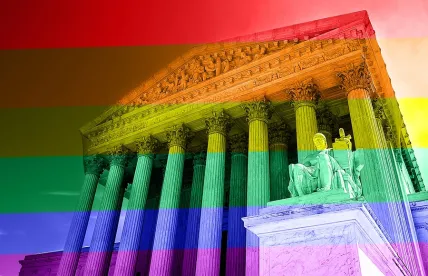In Lampley, an employee alleged his employer discriminated against him based on sex because “his behavior and appearance contradicted the stereotypes of maleness held by his employer.” The Missouri Commission on Human Rights terminated proceedings on this matter, finding the employee’s claims were based on sexual orientation. The appellate court disagreed, finding that the employee’s claims of discrimination were not based on sexual orientation, but sex itself.
Prior to this case, Missouri courts had not formally pronounced that sex stereotyping falls within the scope of the Missouri Human Rights Act. In Lampley, however, the court found that the existing case law provides a framework that readily accommodates a sex stereotyping theory. Additionally, the court concluded that sex stereotyping could satisfy the fourth element of a prima facie sex discrimination case, i.e., that the employee was treated differently from similarly situated members of the opposite sex. In reaching its decision, the Missouri Court relied on Sixth and Second Circuit Courts of Appeals opinions holding that an employee has a cause of action for sex stereotyping regardless of his or her sexual orientation or gender identity.
The Missouri case is one of several recent opinions addressing sex stereotyping and sexual orientation. Earlier this year, the Seventh Circuit issued a more expansive decision, holding that Title VII of the Civil Rights Act of 1964 protects individuals from discrimination based on sexual orientation. The Seventh Circuit wrote, “it is actually impossible to discriminate on the basis of sexual orientation without discriminating on the basis of sex.” It compared the case to others based on sex stereotyping, interracial marriage, and same-sex sexual harassment.
The Seventh Circuit’s decision split from an Eleventh Circuit ruling just one month earlier. The Second Circuit heard a similar case en banc but has yet to issue a decision on whether it will uphold its current ruling that Title VII does not protect against discrimination on the basis of sexual orientation. On December 11, 2017, the Supreme Court of the United States declined to review the Eleventh Circuit ruling, leaving the circuit split in place.
Since uncertainly will remain in this area of law, headlines will likely continue to abound about discrimination against lesbian, gay, bisexual, transgender, and queer (LGBTQ) individuals. Indeed, the Occupational Safety and Health Administration recently published “Best Practices: A Guide to Restroom Access for Transgender Workers,” providing guidance for employers on best practices regarding safe and sanitary restroom access for transgender employees. Plus, numerous states and Washington, D.C. have now explicitly prohibited discrimination based on gender identity and expression, with many counties and municipalities across the nation creating their own similar ordinances.
Since employers will continue to address these issues, employers may want to assess their workplaces and consider implementing certain practices. Employers can consider doing the following to address gender identity issues in the workplace:
-
Update policies to provide explicit protections against sexual orientation and transgender discrimination and harassment
-
Implement gender-neutral dress codes
-
Consider guidance or training for supervisors and managers
-
Establish an action plan for transitioning employees
-
Use the employee’s chosen name and pronouns
-
Ensure access to restrooms and other facilities
-
Familiarize the workforce with helpful, external transgender resources
-
Ensure health benefit plans are nondiscriminatory with respect to gender




 />i
/>i
